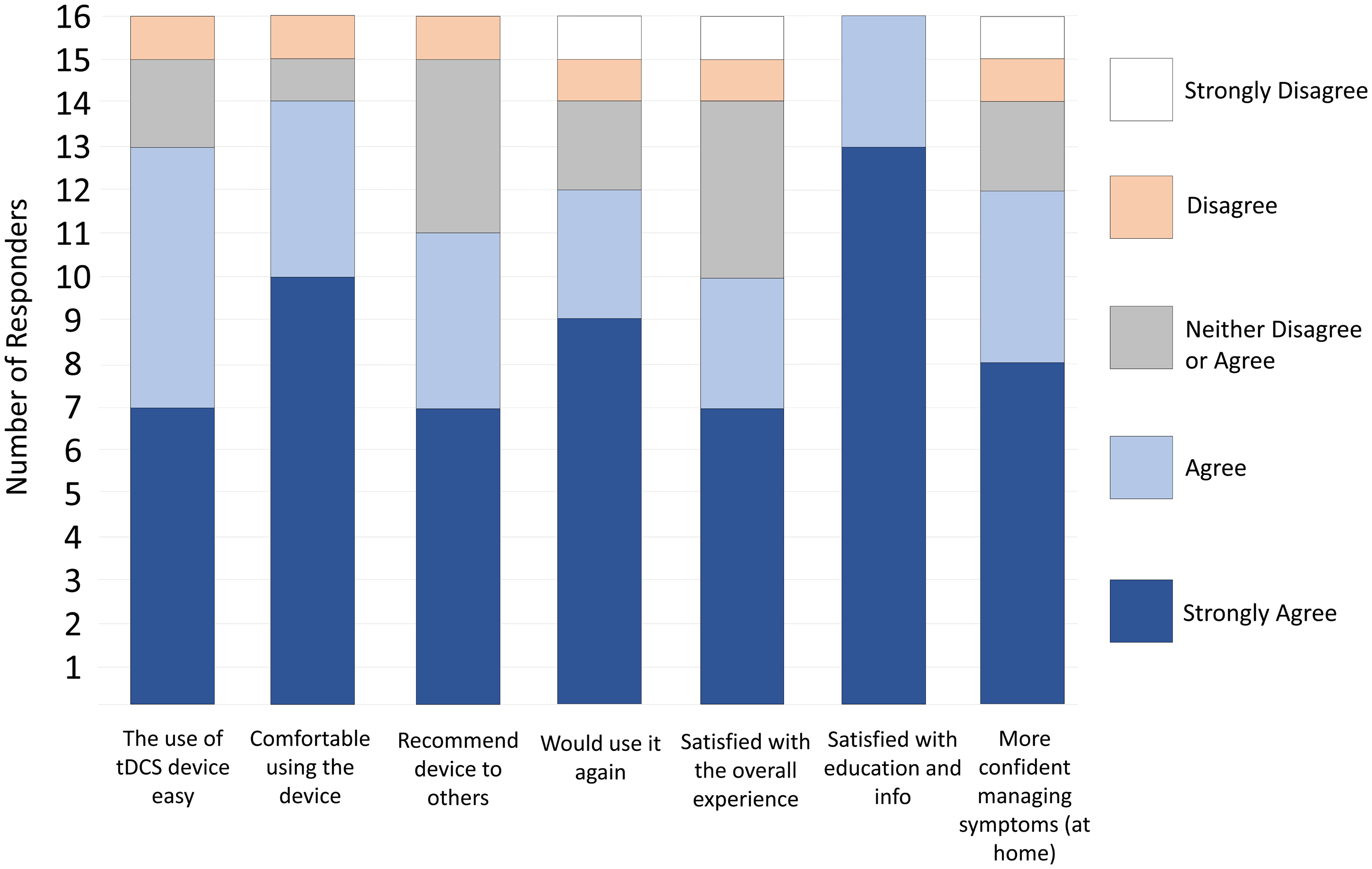
Figure 1. Satisfaction with the device and procedure (n = 16).
| Journal of Neurology Research, ISSN 1923-2845 print, 1923-2853 online, Open Access |
| Article copyright, the authors; Journal compilation copyright, J Neurol Res and Elmer Press Inc |
| Journal website https://www.neurores.org |
Short Communication
Volume 14, Number 1, June 2024, pages 37-42
Non-Invasive Neuromodulation for Episodic and Chronic Migraine Headache: Preliminary Findings on Feasibility of At-Home Transcranial Direct Current Stimulation With Remote Supervision
Figure

Tables
| Characteristics | Median (IQR) or N (%) |
|---|---|
| aRace analyses are White, Non-Hispanic vs. African American, Hispanic or Asian. bEducation analyses are completed high school and some college vs. completed college and graduate school. MSQ: Migraine-Specific Quality of Life; Ham-D: Hamilton Depression Scale; KPS: Karnofsky Performance Status: (100 - Normal, no complaints, no evidence of disease; 90 - Able to carry on normal activity, minor signs or symptoms of disease; 80 - Normal activity with effort, some signs or symptoms of disease; 70 - Cares for self, unable to carry on normal activity or do work). | |
| Demographics | |
| Age | 37 (27 - 46) |
| Gender | 17 F, 5 M |
| Racea | |
| White, non-Hispanic | 15 (68%) |
| African American | 2 (9%) |
| Hispanic | 3 (14%) |
| Asian | 2 (9%) |
| Educationb | |
| Completed high school | 1 (5%) |
| Some college | 4 (18%) |
| Completed college | 16 (73%) |
| Graduate school | 1 (5%) |
| Marital status | |
| Single | 14 (64%) |
| Married or living with partner | 8 (36%) |
| Clinical characteristics | |
| Migraine duration (years) | 17 (10 - 29) |
| Chronic migraine status | |
| Episodic | 7 (32%) |
| Chronic | 15 (68%) |
| KPS | |
| 70 | 1 (5%) |
| 80 | 8 (37%) |
| 90 | 12 (55%) |
| 100 | 1 (5%) |
| Baseline diary data/30 days | |
| Migraine days | 23 (11 - 28) |
| Migraine attacks | 5 (2 - 6) |
| Acute medication days | 6 (1 - 16) |
| Acute medication doses | 11 (2 - 28) |
| Average migraine pain intensity | 5 (4 - 6) |
| Aura days | 0 (0 - 2) |
| Nausea days | 2 (0 - 6) |
| Photophobia days | 8 (2 - 24) |
| Phonophobia days | 6 (2 - 16) |
| MSQ total | 42 (38 - 48) |
| MSQ role restriction | 23 (21 - 29) |
| MSQ role prevention | 9 (6 - 11) |
| MSQ emotion function | 10 (8 - 12) |
| Ham-D | 9 (4 - 13) |
| Stimulation days, mean (SD) | Stimulation days, range | Stimulation days, median | Adherence ≥ 80% of delivered sessions, N (%) | Adherence 100% of delivered sessions, N (%) | |
|---|---|---|---|---|---|
| SD: standard deviation. | |||||
| Month 1 | 25.7 (5.2) | 10 - 30 | 27.5 | 12 (75%) | 4 (25%) |
| Month 2 | 23.6 (8.8) | 3 - 30 | 27.5 | 11 (68.8%) | 4 (25%) |
| Total 60-day period | 49.3 (13.2) | 13 - 60 | 52.5 | 11 (68.8%) | 4 (25%) |